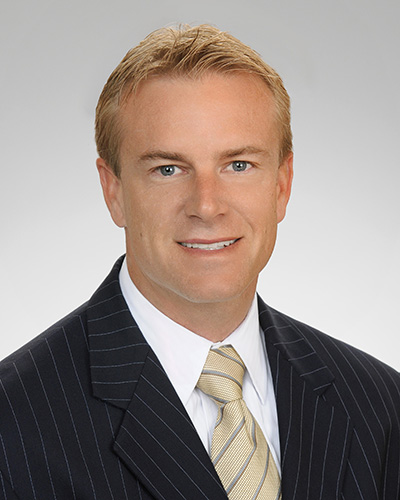As a partner at KPMG, Jim Negus leads the firm’s Pacific Southwest Consulting Unit and national Treasury and Capital Markets Practice. He has worked in KPMG’s Los Angeles and New York offices for 17 years and was elected into the partnership in 2001. After you get to know Jim, you aren’t the least bit surprised that he chose a profession in consulting. You also learn that he’s very passionate about giving back.

Born and raised in Wisconsin, Jim moved to Los Angeles in 1990 with his mother when she accepted a consulting position in Westwood. He transferred from the University of Wisconsin–Madison to LMU based on a recommendation from a close friend.
Jim subsequently completed his undergraduate degree in marketing and continued on with LMU, earning an MBA in finance. “I had a great experience at LMU,” said Jim. “LMU offers a great balance between small classes with personalized attention and large school programs.”
Why choose marketing and finance for your undergraduate and MBA studies?
I truly believe graduates require strong technical and communication skills. Marketing provides a solid foundation to understand the importance of the customer point of view, messaging, and effective written and oral presentation skills. My MBA provided deeper knowledge in financial modeling methods, global capital markets, and financial instruments. Combined, these skills have been invaluable in my current consulting career and continue to serve me well outside the workplace.
You had an accelerated track to becoming partner. To what or to whom do you credit your professional success?
I give credit to KPMG, my family and my clients. KPMG prides itself on giving individuals the platform and tools to be successful, and cultivates an environment of inspiring confidence and empowering growth. The firm encourages individuals and teams to operate as entrepreneurs, innovators and stewards of the company. This environment is exciting and demanding and after nearly 17 years with the firm, I still love what I do. While I made partner before starting a family, they endure late night arrivals, nights away from home and a very demanding schedule. My children have literally grown up with KPMG and my wife is as vested in the firm as me. Without their support, I would not nearly enjoy the KPMG experience or operate at the expected level. Lastly, without clients, I would have very little to do. I sincerely value these relationships and never take for granted their personal and professional support.
What do you like most about your job? What’s most challenging?
The best thing about my job is working with phenomenally talented and interesting people. I have the ability to sit with many of the leading U.S. and global corporate, government and business leaders who are on the forefront of strategic and cutting edge ideas. This opportunity creates challenges as I must continuously interact with geographically disperse client peers, synthesize and absorb corporate and economic materials, and develop a practical and tailored point of view. My job is exciting, challenging and never predictable.
What do you consider to be your greatest accomplishment?
I am a husband and father of two – a son and daughter. I take pride in finding balance in my personal and professional life. I often find myself working strange hours and spending time in too many airports. That said, I rarely miss soccer or hockey practice and I try very hard to turn off the computer and dedicate the weekends to my family. I am proud that I have been able to stay focused on what is personally and professionally important.
What advice would you give recent business graduates in today’s competitive job market?
First, be confident in your capabilities and don’t be afraid to demonstrate a controlled sense of swagger. Actively seek constructive criticism and, as difficult as it may be, consciously work to improve areas of known weakness. Next, nurture personal and business relationships. We all have extremity valuable relationships and access to individuals of influence. To that end, we can leverage alumni associations, religious and political affiliations, and personal interest groups. Be creative on how to leverage your network and continually work toward a trusted and valued advisor relationship. Finally, keep learning, have fun, and never underestimate the power of effective communication.
You’ve been very generous to LMU over the past year through scholarship support, finding jobs for our students and speaking in classes. Why do you believe it’s so important to give back?
Everyone who attends or has graduated from LMU is extremely fortunate and is likely in a position to give back. I believe each of us has an obligation to give back to our communities, our schools and most important, to those most in need. The saying “one size does not fit all” is very appropriate here. Gifts are personal, are granted in many forms – including financial, time and access to an individual’s network – and are selfish in nature. Most importantly, we should give because we genuinely want to.
My family and I support LMU primarily because we appreciate the value of education. We also understand the unfortunate reality that without outside assistance, deserving individuals may not be able to enjoy the same experience that I was privileged to have at LMU. It is also important to set an example for our children and to demonstrate the overwhelming satisfaction we get when we meet, develop a bond with, and root for the recipients of our grants.
What is so unique to you about LMU?
People at LMU genuinely care. While the faculty can be tough at times, they are passionate about education and fiercely protective of and loyal to their students. For me, this resulted in a very personalized education and a lasting bond with many of my former professors. This culture is infectious and I hope others are able to share my experience.